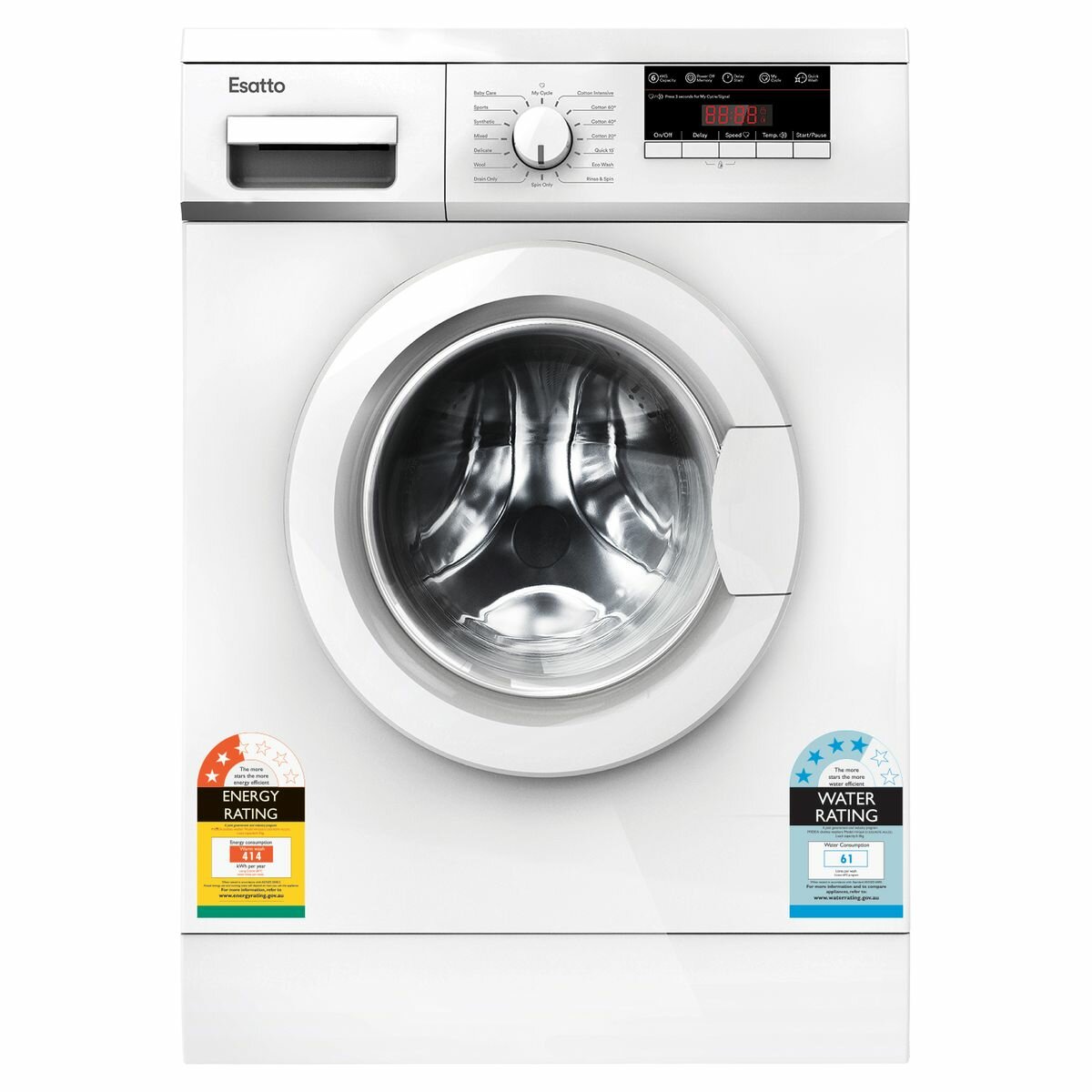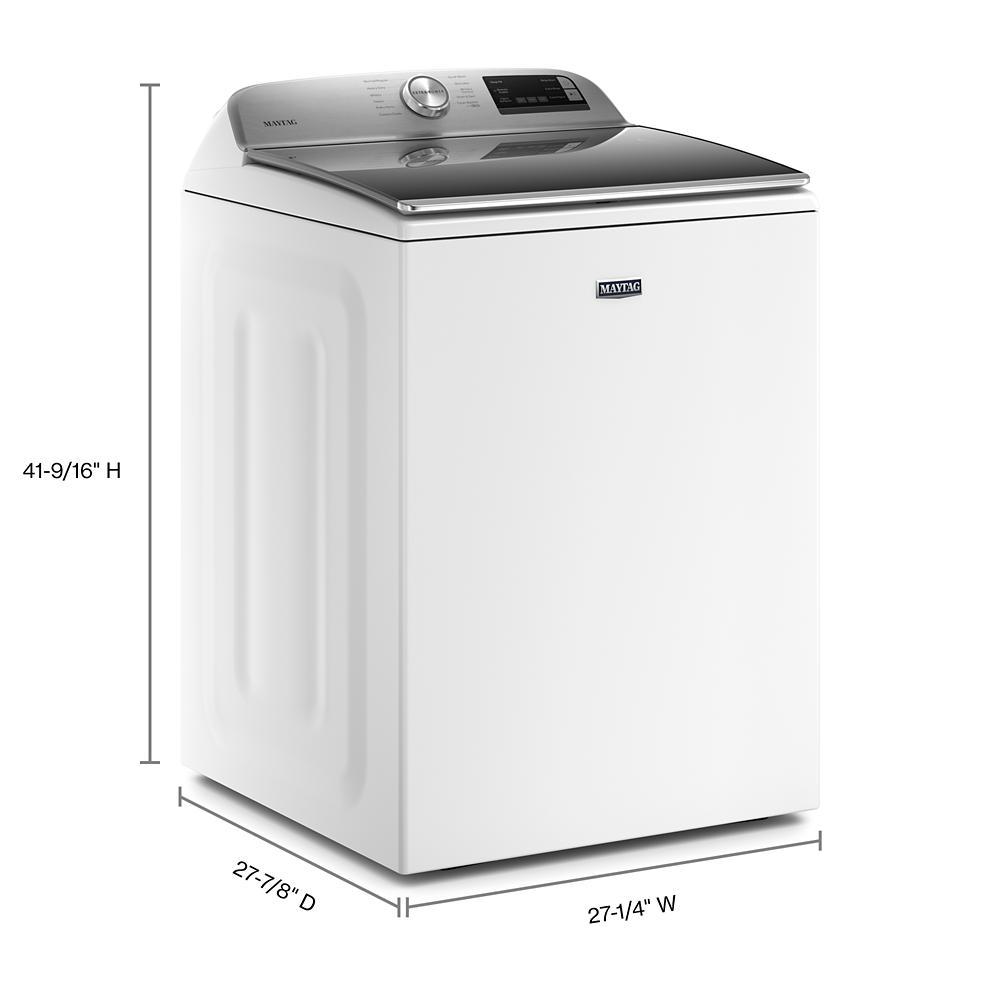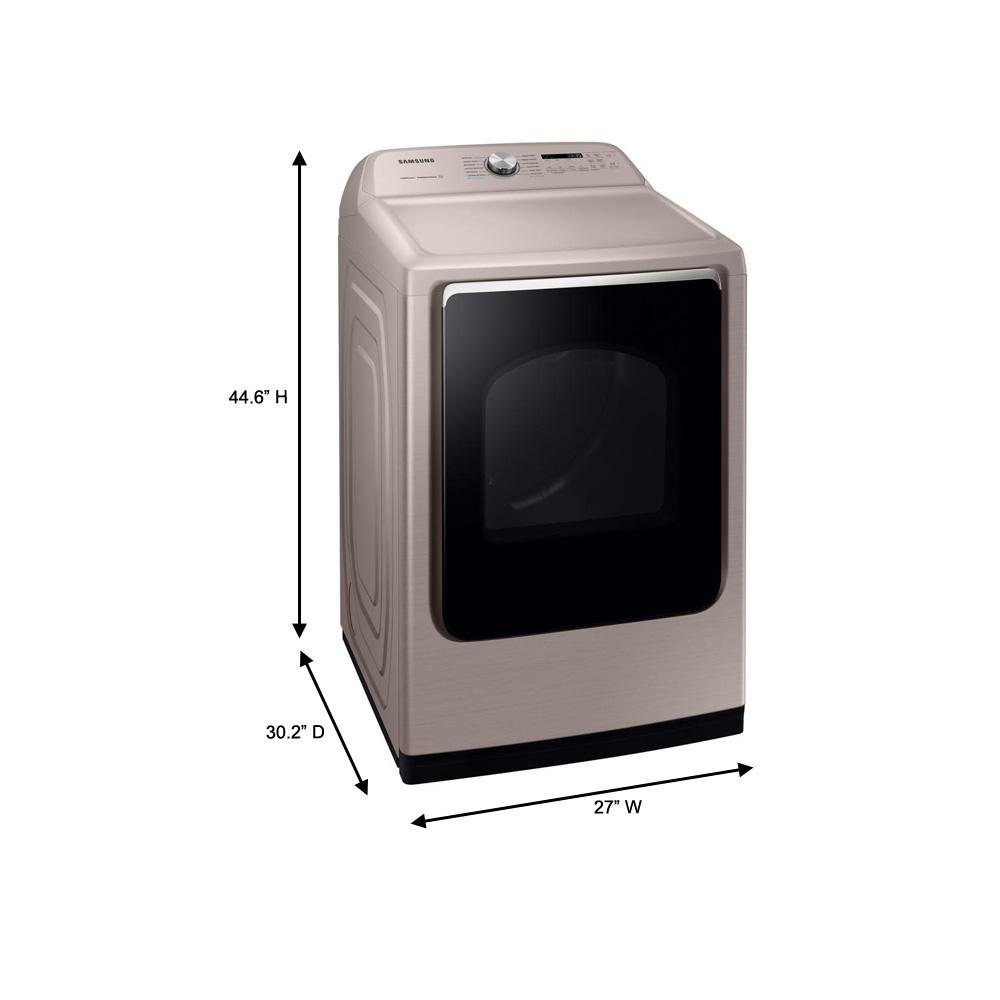Samsung Series 5 ecobubble™ WW90TA046AE 9Kg Washing Machine with 1400 rpm – White
Say goodbye to stubborn stains with this white washing machine from Samsung. This model has a generous 9kg drum, making it ideal for medium-sized households. Grass marks and chocolate smudges won’t stand a chance either, as the Bubble Soak feature soaks your clothes in foam before the wash starts – loosening any dirt for an extra thorough clean.
Say goodbye to stubborn stains with this white washing machine from Samsung. This model has a generous 9kg drum, making it ideal for medium-sized households. Grass marks and chocolate smudges won’t stand a chance either, as the Bubble Soak feature soaks your clothes in foam before the wash starts – loosening any dirt for an extra thorough clean. Or if your sweaty gym kit has been sat in the laundry basket for days, pop on the Hygiene Steam cycle, which removes up to 99.9% of common bacteria. It comes with a really quiet Digital Inverter Motor too, so it won’t disturb you if your kitchen and living area is open-plan.
- 9kg drum capacity – great for medium-sized households
- Bubble Soak loosens tough stains for thorough cleaning
- Special steam function gives clothes a hygienic clean
- Super quiet model – great for open plan living
- Dimensions (cm) – H85 x W60 x D55
Additional information
| Dimensions | (H)85.0 x (W)60.0 x (D)55.0 |
|---|---|
| Dimensions With Packaging | (H)89 x (W)67 x (D)66 cm |
| Weight | 68 Kg |
| Weight With Packaging | 70 Kg |






by Ginny
Nice capacity. Detects the size of load and adjust program accordingly to save time, water and energy. Very quiet while running. Great value.
by Chris
Great washing machine, that’s got lots of different programs and it’s efficient and quiet too.
by Paul
So far so good. It’s been a few weeks since we got our Samsung washing machine. We are very pleased with it. It’s very quiet while washing but a bit noisy when finishing ( a bit annoying musical announcement).
by Thomas
An excellent washing machine from Samsung. Easy to use, super quiet and energy efficient. I would definitely recommend this machine.
by Steve
Such a great washing machine. Very silent and looks great in my utility room. I got the 9kg so fits a huge amount in one wash. Great buy if you’re thinking of changing and getting a new one.